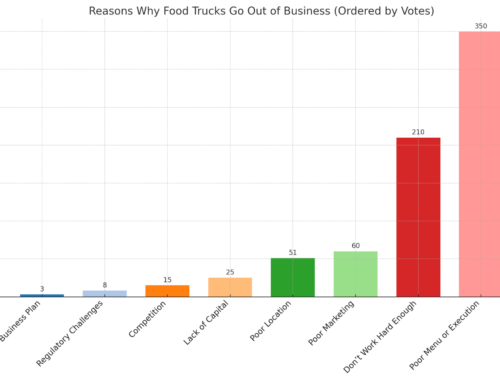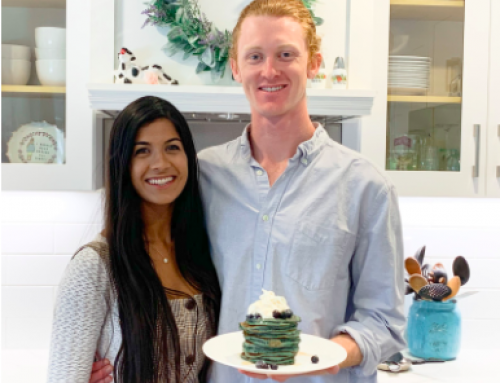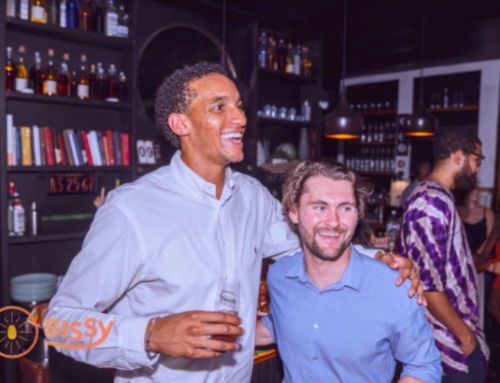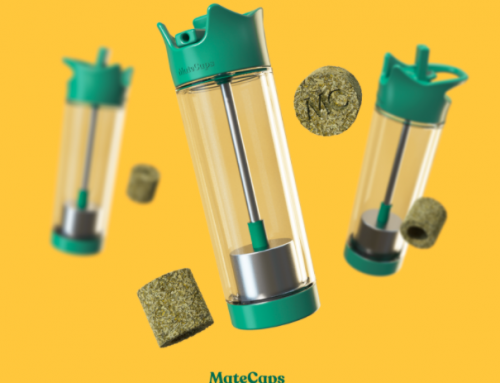Hello! Who are you and what food business did you start?
I’m Sarah Feoli, the co-founder of U.S. Veg Corp. The company stages large-scale vegetarian food festivals in 3 states: New York, Arizona, and California. We also have put on more intimate gatherings around the New York City area, such as Vegan Drinks, a humane fashion night called Have Mercy, a ping pong tournament, vegan food competitions, and the upcoming Little Apples event for vegan parents.
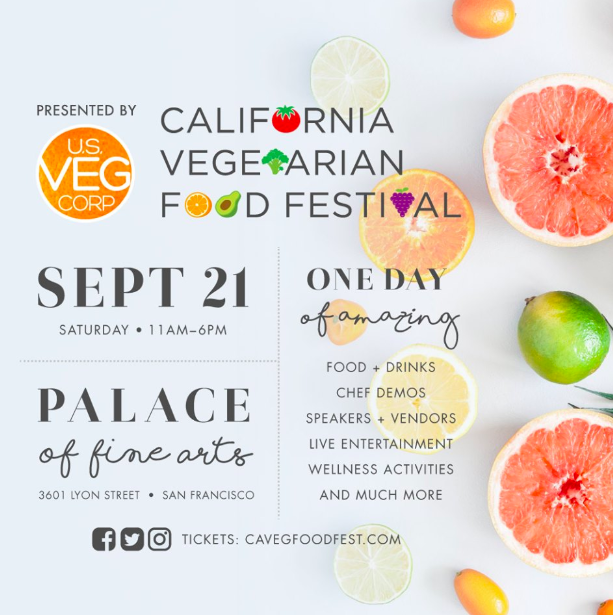
What’s your backstory and how did you come up with the idea?
I became a vegetarian in middle school and a vegan in high school. It started out just as a way of being kinder to animals. But I later learned how beneficial a vegan lifestyle is for one’s health, and also how much more sustainable it is for the planet as a whole.
Where I grew up, in Louisiana, there weren’t a lot of vegan options as far as restaurants, markets, or places to buy leather-free purses and shoes! I became interested in plant-based food festivals where all the newest foods and products could be found under one roof.
Related Reading: How We Help Food Businesses Transition to Animal-Free Meat
I was particularly inspired by the one in Boston, which is one of the longest running in the country. When I moved to New York, it was amazing to me that the best city in the world did not have a vegetarian food festival of its own. Not understanding all that was involved in putting one on, my business partner and I just plunged into creating it from scratch. That first year (2011), we were astounded by its success. Nowadays, there are plenty of imitators around, which we understand as a form of flattery.
Take us through the process of starting a vegan food festival.
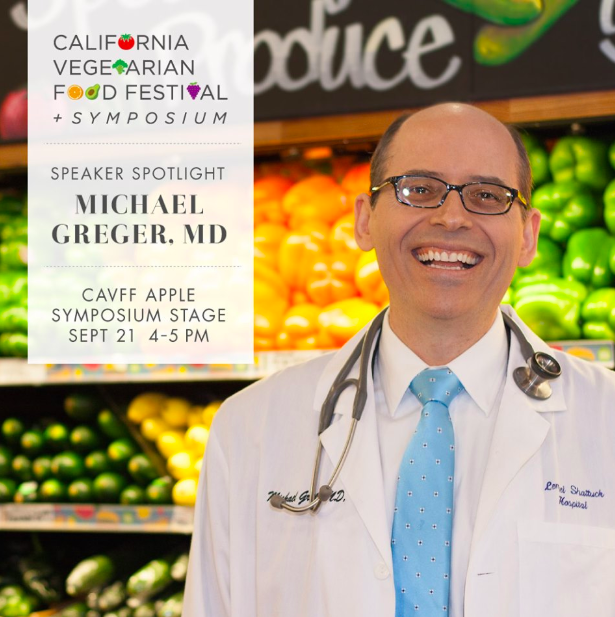
First we needed to rent a venue that was easy for everyone to get to, but not so expensive that we would be out of business before we started. Finding reasonably priced real estate in Manhattan is quite challenging. We settled on the Altman Building in Chelsea.
Then we put out the call for vendors. We were lucky enough to score some amazing chefs and companies who were just trying to get off the ground themselves. They were willing to use our festival as a platform to introduce their products to the public.
We were also fortunate in finding some engaging presenters, both for the chef demos and the keynote lectures. We hadn’t seen these people in action before, so it was a little nerve-wracking at first. It turned out that our festival-goers were super receptive.
Describe the process of launching the event series.
We knew we had to publicize the heck out of the event, so we were relentless with our social media postings. We also reached out to traditional print and broadcast media and created a blizzard of press releases.
My partner, Nira Paliwoda, is a lawyer, so it fell to her to navigate through the health department permitting process, and temporary food service licensing, and vendor contract negotiations.
For staffing, we basically relied on an army of volunteers. Set-up, break-down, photography, tee shirt design, backstage help, program booklet proofreading, website maintenance… we were all running around like crazy people.
Costs to rent the venue were covered by advance ticket sales. We offered no stipends or expenses to our presenters, simply because we didn’t have the funds available (not because they weren’t worth it!). Every dollar we raised was plowed right back into the business, so that we could put on the next festival and then the next one. For several years, my partner and I did not take a salary.
I think if we had known what a big undertaking it was going to be, we never would have started. In our case, ignorance was our biggest asset.
Since launch, what has worked to attract attendees?
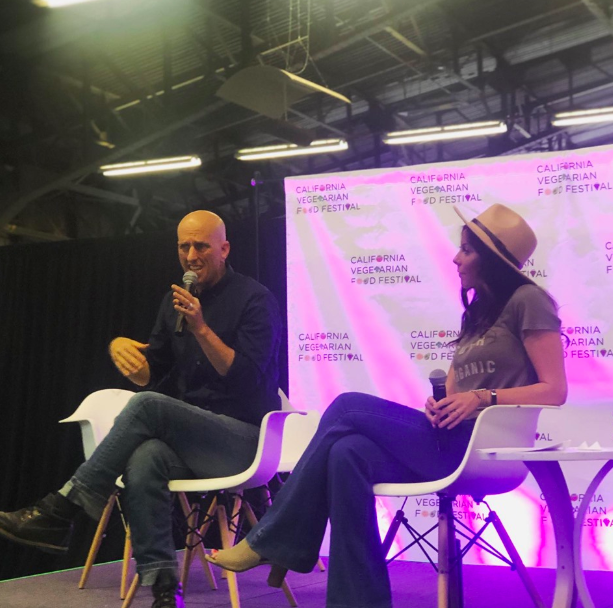
We keep building and enlarging our base. In order to purchase advance tickets, our customers give us their email addresses which go right into our database. We reach out to them through email several times a month, letting them know about all of our events (not only those events that are within their geographical area).
It is also necessary to be on top of the latest trends in the plant-based space, so that we can engage in conversations with all the influencers and count U.S. Veg Corp among them.
So we social network with the innovative chefs, the hottest restaurants, the start-ups developing meat alternatives, the animal activists, the environmental and sustainability advocates, and other stakeholders. The wider we cast our net, the larger is our pool for potential customers.
How are you doing today and what does the future look like?
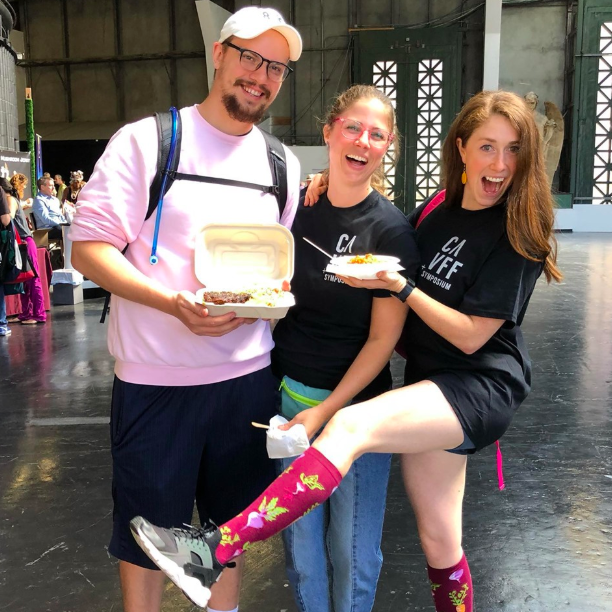
We are doing well. Whenever we introduce a festival to a new city, we start with just a one-day event. By the next year, we have always jumped to 2 days because that’s how great the interest becomes.
I mentioned that our first NYC festival was at the Altman Building. It turned out that the space just wasn’t big enough. We had 2-hour lines of people waiting to get in, and some of them never did that first year. So the next year we moved to a larger space–the Metropolitan Pavilion–where we have been ever since.
Related Reading: How I Started a $75K/Month Vegan Cookie Business with My Mom.
We also offer more content every year. It’s not just about vendors and chefs. At our most recent festival in San Francisco, we had 2 stages for keynote speakers.
That’s where we hear from physicians doing research into the benefits of a plant-based diet; or from undercover animal abuse investigators; or from world-class athletes who have won all these awards, fueled completely by plants. We had a mind zone (for meditation, etc.) and a body zone (for Pilates, yoga, etc.). We always have a children’s activity area called Kumquat Kids. We provide an entertainment stage for musicians, comedians, and even circus acts.
All of our attendees love our step-and-repeat banners for selfies, and we create other visually interesting spaces for them to experiment with. Each year we join with a non-profit that shares our ideals, and we do a raffle at the festival to raise money for that partner. We often invite animal rescue groups to bring adoptable animals to the festival grounds, and some heartwarming adoptions have occurred.
But maybe in the end, it all comes down to the food, which just gets more exciting and scrumptious every year!
Through starting the vegan focused event, have you learned anything particularly helpful?
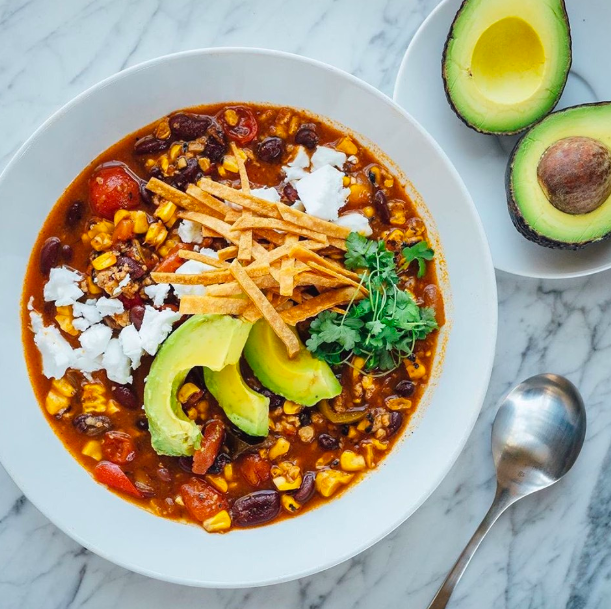
I’ve learned there will be unexpected bumps in the road, and that the best strategy is to power over them. When the negatives start to pile up (a speaker cancels at the last minute, or the AV technicians are charging four times more than they estimated, or the weather on festival day is brutal…), it is useful to remember the larger picture.
Which is: that we are helping people to live healthier and more humane lives. For the most part, vegans and the veg-curious people are the good ones. They are the people you want to associate with, talk to, sell to, and befriend. I’ve learned that they are the ones I want to center my business around.
What tools do you use to manage the logistics of your event?
We do email marketing through Mailchimp. We use QuickBooks for accounting. Eventbrite and Sparxo are great for ticket sales. PS Print does our banners and booklets–they can work last-minute, which is vital for us.
What have been the most influential books or podcasts?
I love everything Tim Ferris produces, particularly his first book, The 4-Hour Work Week, and his podcast. I don’t only go for business resources, though, because being well-rounded is ultimately very helpful in business. Novels can give me the best insights into the psychology of real-life customers. I also focus on quality down time, so I listen to guided meditations and take daily walks and do exercise as if it were a religion.
Advice for other food entrepreneurs who want to get started or are just starting out?
- Start with your own passions. It would be impossible for me to promote the vegan lifestyle if I were not a committed vegan myself. My business partner, on the other hand, describes herself as a flexitarian. She is open to the plant-based world, but she doesn’t live there exclusively.
- Reach out to experts who can fill in the gaps in your own skill set. For example, we’re not the most gifted visual artists, so we hire a professional to design our logos and other branded looks.
Where can we go to learn more?
- Website: https://www.usvegcorp.com/
- Facebook: https://www.facebook.com/usvegcorp
- Twitter: https://twitter.com/usvegcorp
- Instagram: https://www.instagram.com/usvegcorp/
- Email: [email protected]

